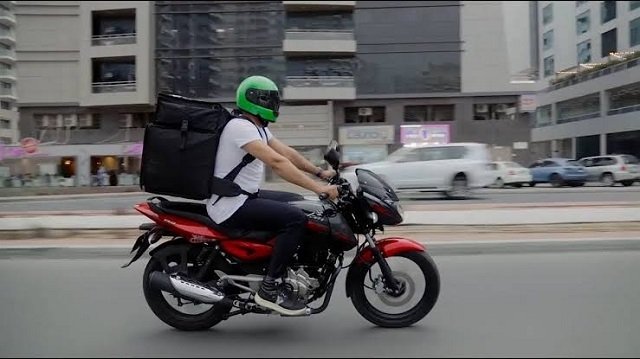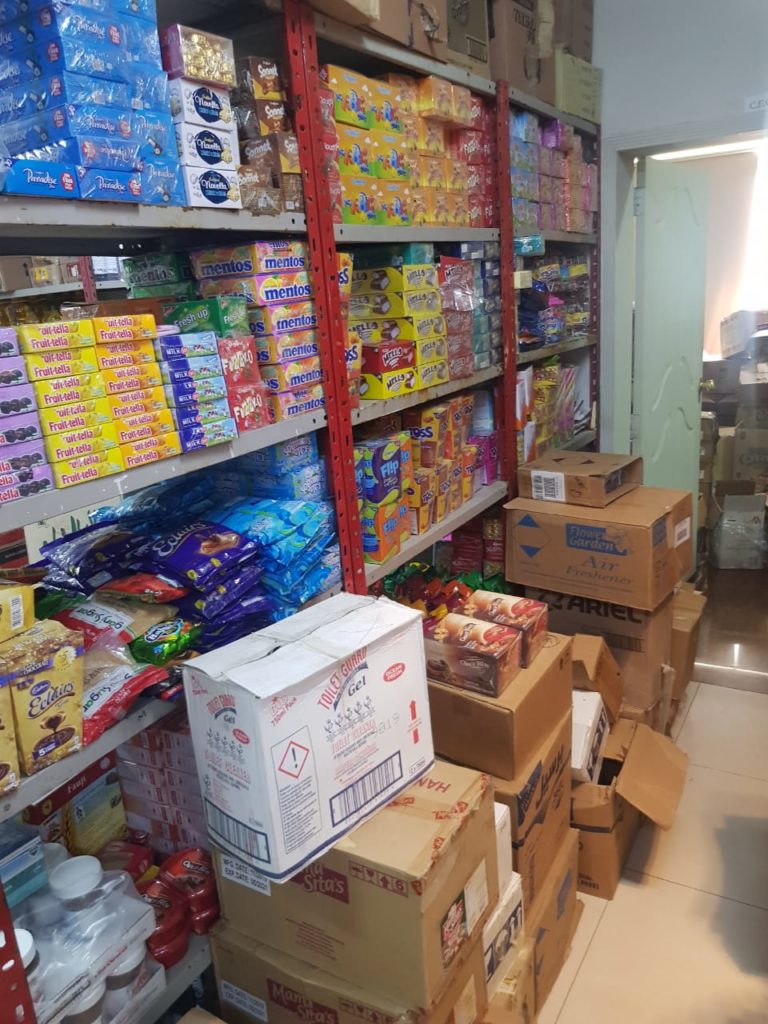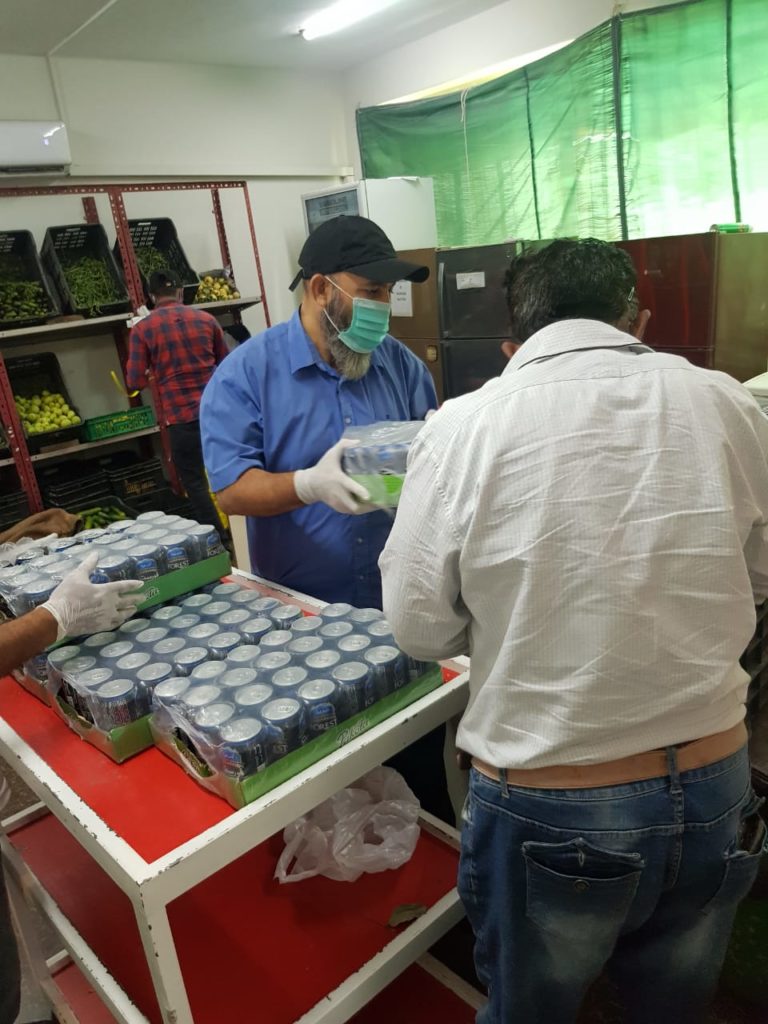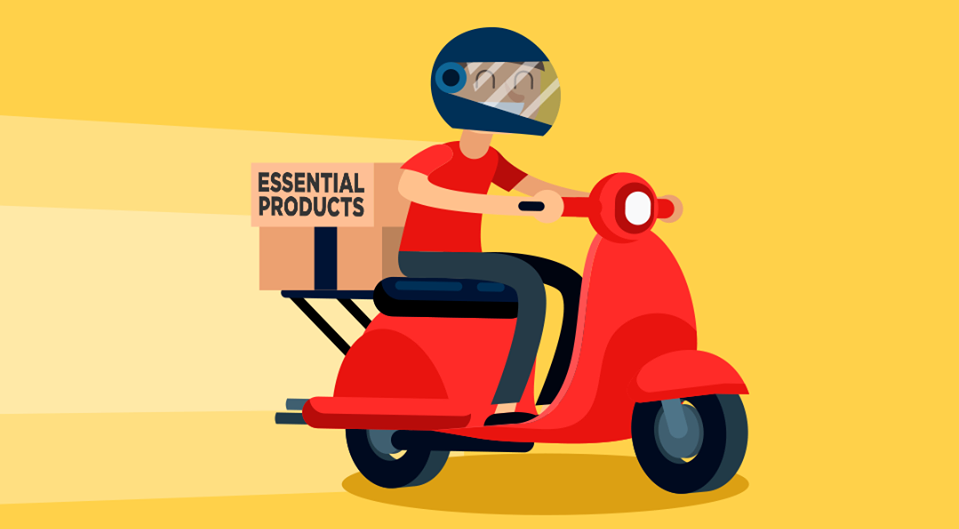“The smartphone has transformed online shopping in Pakistan and the COVID-19 lockdown has accelerated it,” says Jarrar Shah of 24seven, an online grocery store based in Lahore.
Shah’s words ring true because the past couple of weeks have witnessed a great shift in the way the world functions. As cases of coronavirus rose in Pakistan, the country went into lockdown, until recently, with all offices, shops, malls, restaurants closed. Only pharmacies, grocery stores and essential businesses were allowed to operate and that too for a limited number of hours. Unfortunately, us Pakistanis are not very used to that lifestyle – our day begins well into the afternoon and ends just before midnight – but changing circumstances forced us all to alter our routines and many of us turned to online shopping in a bid to make life easier for ourselves. According to Google Trends, searches for ‘online grocery’ grew exponentially in the last few weeks with the sharpest rise registered in the week following the lockdown.
Read more – Washington DC market uses robots to deliver groceries during coronavirus pandemic
While we’re all aware of how online shopping works at our end, on the other side it’s a whole different ball game.
Speaking to The Current about the procedure that follows, Jarrar explained that after the customer places an order on any of their portals – website, application, Whatsapp – the order is processed and their team begins to collect the items. He shared that though they have their own warehouse, they have partnered with other stores, bakeries and meat shops and sometimes depending on the order placed, they have to collect items from different locations to complete an order. Both Jarrar and Bilal Bakhtawari of D Watson, Islamabad said that the app is the most convenient of them all because it mentions the price and availability of products saving the time of both the customers and the stores. Once the order is complete, the riders deliver it.

In this whole process, the rider perhaps has the toughest job.
“We provide the riders with all the necessary precautions, including sanitisers, masks and regular temperature checks, but to what extent can we keep them safe? These guys often have to deliver stuff, come rain, come sun and often have to travel long distances to deliver orders,” says Bilal, adding that if any of the riders feel ill, they are told to immediately get themselves checked and are sent home.
Both Jarrar and Bilal also asserted that their premises are regularly disinfected and cleaned.

While most customers are accommodating and patient and are willing to overlook delays and incomplete orders, given the situation, there is a small percentage of them who tend to be unreasonable.
“Customers have been by and large accommodating. Only ten percent of them have issues,” says Shah.
Both business owners explained that they initially faced problems because they were not prepared to manage such a situation as they went from a few orders to a hundred or more orders every day. However, with time they managed to streamline their services by increasing staff and opting for better rider services.

24Seven’s warehouse 
Sharing a particularly harrowing experience, Shah shared that someone placed an order from abroad for their loved ones in Lahore using a credit card.
“When the rider went to deliver they said the stuff is not up to the mark and kept the rider hostage, demanding that we refund them the amount in cash. It turned out that the whole situation was a scam. The person from abroad wanted to send money to Pakistan and because all money wiring services were closed, they attempted to use our store to do so.”
“We’ve referred the matter to the police,” he added.
Similarly, Bilal recounting his nightmarish experience shared that a lady placed an order for fruits and vegetables on their app after store timings. He said that the prices of fresh goods are revised daily and when her order was processed the next day, she was informed of the change in prices before confirming her order. However, when the rider went to deliver her order, she claimed that she had cancelled her order. After a whole fuss, it was revealed that her husband was not satisfied with the prices and was not willing to pay for the order because of which she put the entire blame on the management to try to get out of the situation.

While people in Pakistan still prefer to go and buy their groceries in person, online shopping is slowly but steadily getting popular, especially among those who lead fast-paced lifestyles and have limited time.
On whether this is feasible in Pakistan or not, Jarrar is positive that it is. However, Bilal feels that until online payments like Paypal don’t come to Pakistan, online businesses won’t flourish.
“As we have observed in the past couple of weeks, the market for online shopping is definitely promising. However, in my opinion, it won’t flourish until a proper payment system is put into place,” says Bilal. “We often receive bogus orders with Cash on Delivery because of which our business suffers. People place orders but when our rider goes to the address, there is no one to receive the order.”
“Until online payments come to Pakistan, online businesses will not flourish.”







